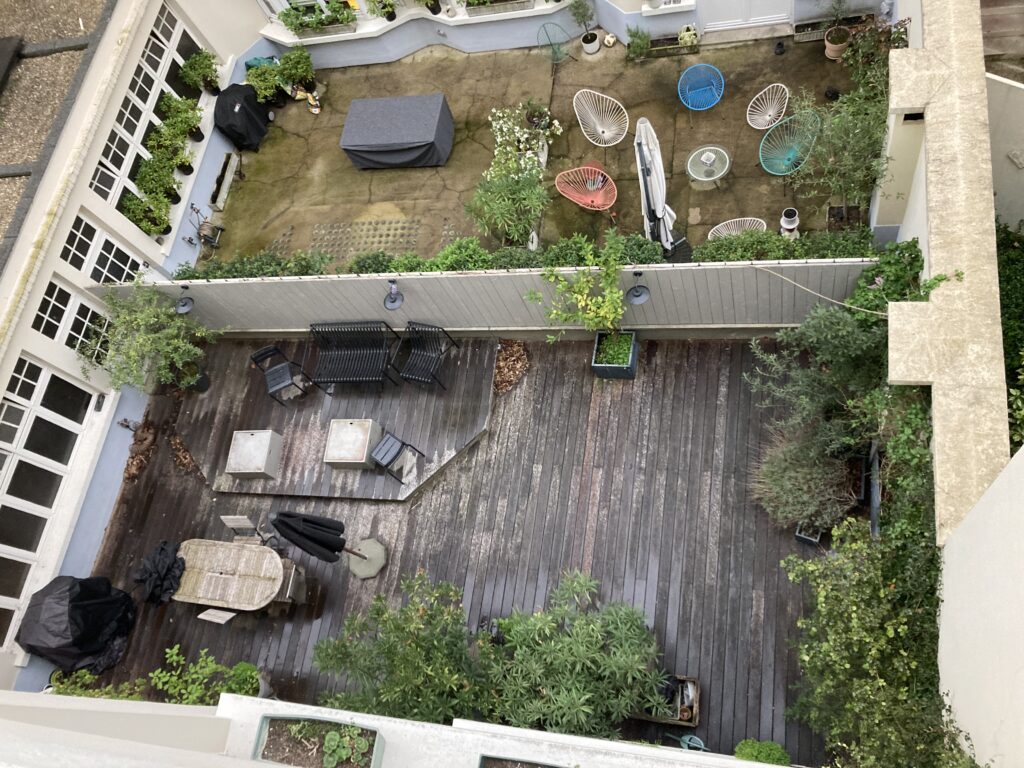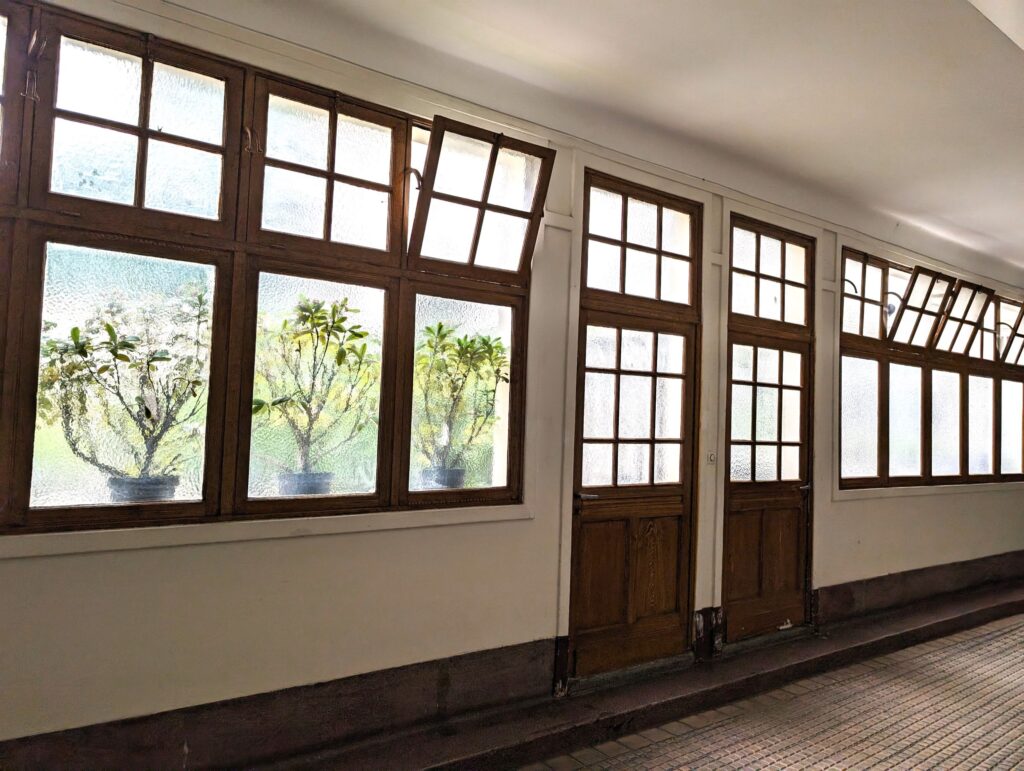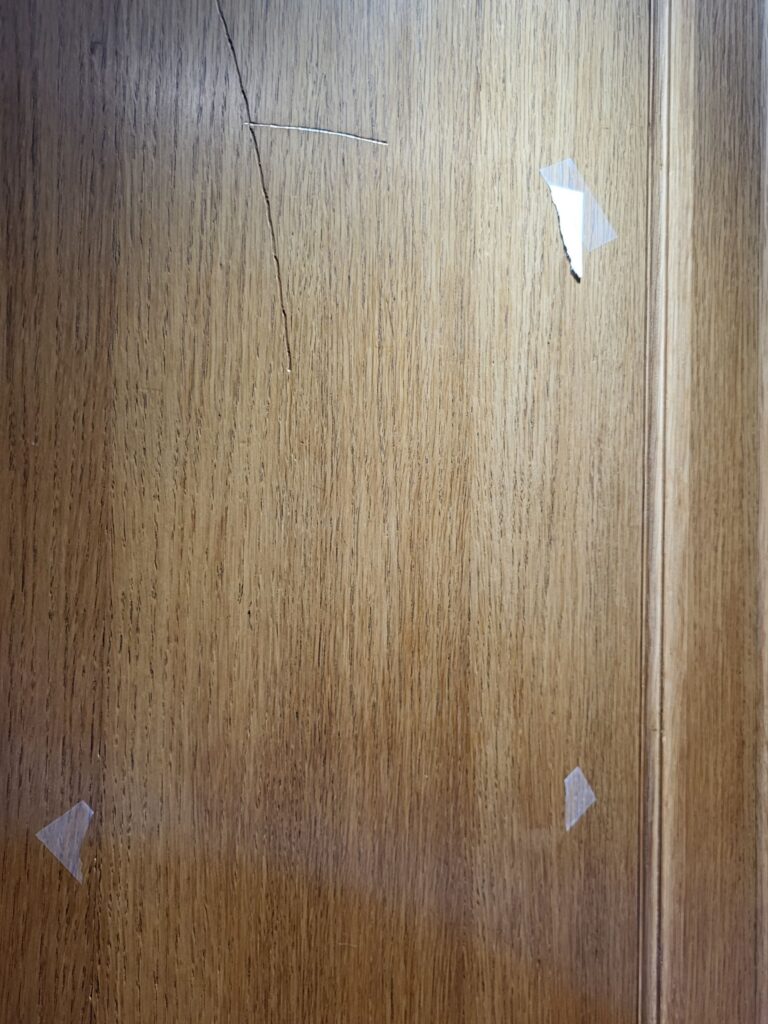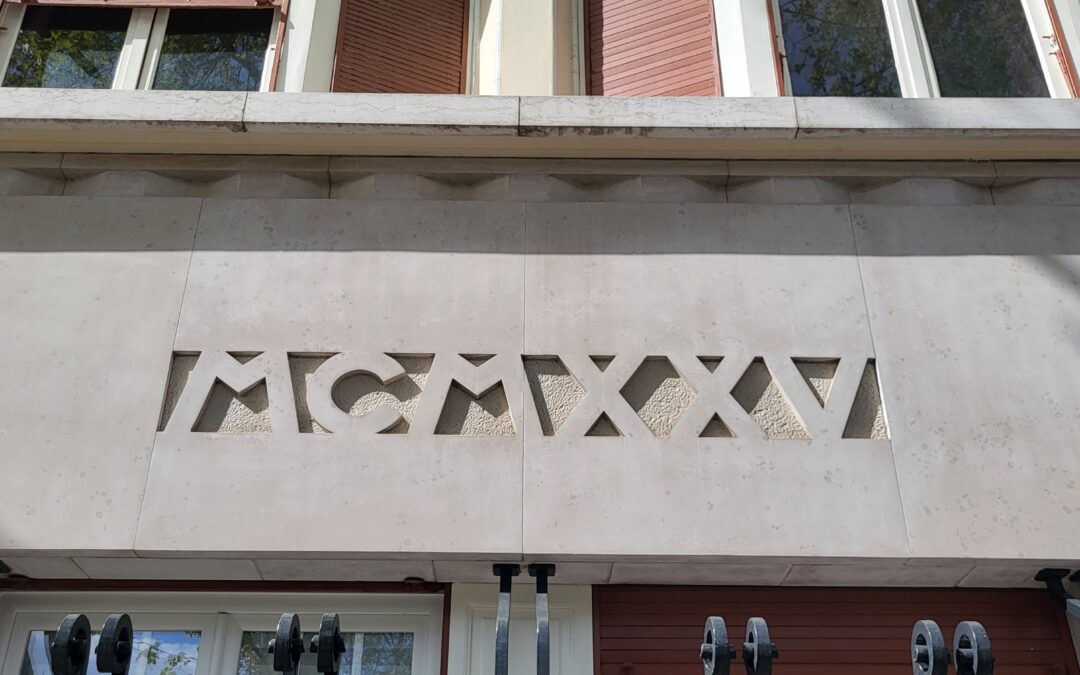Who could be knocking at the apartment door? It was a weekend afternoon, when repair people don’t work and most of the residents of our building go away.
I opened the door to find two of my neighbors, who very politely asked if they could come in. A first in our 12 years in the building. I’d seen them both before and vaguely knew which apartments they lived in (more on that later). But this being Paris, I had no idea what their names were.
They wanted to talk about a fuss over property control. Our Art Deco, 17th-arrondissement building, completed in 1925, includes three structures. Buildings 1 and 2 are joined around a small courtyard; buildings 2 (that’s us) and 3 are separated by a larger space.

Apartment ownership in France follows a system more like that of a condo structure than a co-op. The owners share in building maintenance and other general expenses. They pay their fees in proportion to the square footage they own, including any cellars, underground parking places or exterior service rooms. Owners pay for the whole complex, including emergency building repairs, no matter which structure they live in.
What my visitors – let’s call them M. Boucher and M. Boulanger – wanted to talk about was the large courtyard between buildings 2 and 3. Each owns a ground-floor apartment facing that space, which is divided into two sections that the respective families use extensively. Tables, plants, seating and other decorations make them quite pleasant. In the summer, the families dine and entertain outdoors often. Children play there during the day and teenagers lurk there at night.

But turns out that neither of those spaces has ever been legally attached to the relevant apartments. No rent or condo fees are paid, and never have been.
This has gone on, they explained, for almost 100 years with no complaints. (That’s not quite true; there have been times when the spaces were used as common areas for everyone in the building, I was told later.)
Now, the condo board, in tandem with the “syndic” (the company that manages the building on behalf of the owners) have decided this won’t do. The owners were told a couple of months ago to vacate the outdoor spaces or face judicial procedures. The demand was to be confirmed in a vote at the upcoming annual meeting and, in fact, the agenda we had already received reflected that.
Sitting in the living room, Messrs. Boucher and Boulanger told me they were willing to pay something or otherwise work out a deal with the condo board but had been ignored. (This is, of course, strongly disputed by the condo board). And, they said, they have imputed control since that was the deal when they bought their apartments. It was baked into the purchase price. I would add that dwelling in a ground-floor apartment in Paris is a dark and bleak experience, and I can see why giving up the space would be painful.

The men wanted my support at the annual general meeting. I told them that it did seem unreasonable to push them out abruptly but perhaps they ought to pay something somehow? And also, since our third-floor bedroom window gives onto those patios, could they keep the noise down late on summer evenings? (I’d been looking for a way to bring this up for years.) They readily agreed to the latter and said they were working on the former.
I wondered if a similar situation could arise in, say, New York. That kind of ambiguity seems unlikely in such an expensive and sharp-elbowed city. Indeed, there have been disputes in Manhattan over alleys, ditches, tree boxes and rooftops, among other property. As an Upper West Side-dwelling friend put it, “Nobody leaves space on the table in NYC.”
An expert hired by the condo board concluded that the patios (one is larger than the other) were worth up to 189,000 euros and 252,000 euros ($205,000 and $274,000). I know this because the condo board, perhaps perceiving that the initiative was not being well received ahead of the meeting, sent out a special letter explaining that they would be happy to listen to proposals from the Bouchers and Boulangers and preferred “une solution amiable.”
The board also may have been responding to a letter from M. Boucher posted in the elevators of all three buildings reporting that he, his wife and their four children had been subject to “pressure and intimidation” from the syndic. This even though, he said, the 1925 building statutes referred to their apartment as “with garden.”

There wasn’t much time to read the letter. It had been torn down by the next day.
I was unable to attend the annual meeting, but one building resident told me it was “heated.” Voices were raised, he said. Most of the residents were baffled as to why the board would want to bring this issue up, and in this way. Why value land that was unsellable? Why propose making it a common space when users would be basking in the sun (which appears about two hours a day even in summer) under the eyes of the evicted families?
In the end, the two owners were tasked with coming up with a financial proposal. Probable options included paying for the square footage of the patios as we all do for our apartments, perhaps in a lesser amount, and/or paying a small rent for the space. There was general agreement that the apartment owners should continue to use the patios.
In the past, long timers said, the annual building picnic had been held in that space and perhaps doing so again would send a signal of community.
This was two months ago and there’s no sign of an agreement. Stay tuned.
What’s your solution? Feel free to propose possibilities in the comments.
Photo editing: James Schwartz

So interesting! Sounds like that very-French distinction between permis, toléré, and interdit. The use of the patios was toléré, not permis? Let us know what happens!
I love this analogy! Will do.
Sounds like they need to hire a lawyer or a notaire to defend their interests. . Knowing what I know about “Real Estate” issues in France, from friends who live there and had to deal with the sale of their family home in the 15th which was complicated by a neighbor who was renovating his building next door and had caused structural damage to the wall of their garden, this can become horribly complicated.
Maybe. But without legal proof of what constitutes their interests, it’s complicated, as you say,
Bonsoir, Querrrida Anne… Have a “nigglin’ feeling” that this must be linked to new tax declaration procedures, connected with estimation of space “occupied” by each family… The taxe d’habitation has to be replaced by something… 🙂
Interesting idea! But why would the conseil or the syndic care about that? It wasn’t the government that ordered the change. And the fact that the plan was to eject the families has the opposite effect of collecting more revenue, seems to me.
Hi Anne…..where are the lawyers….or I guess notaires? In NY, everyone would have lawyered up and the battle would have been fought there, not with the conseil….
Good question! But you need two opposing sides to lawyer up and I guess the conseil/syndic are it, against the ground floor guys. But it’s also true that the French in general are more reluctant to go into court.
Anne, this is a great opportunity for a three-way win…the building, the apartment owners AND the neighbors could all get something good. I imagine an outcome in which the building owners retain ownership of the spaces but grant (for a small payment to the building fund) a permanent right-of-way to the apartment owners for use the space. In French law I think this is called “servitude de passage”. This right of way would be conveyable…an important win for the owners. And…the servitude could have some key conditions, such as the space can be used as a community space twice a year (or whatever) and must be used quietly and reasonably, benefiting the neighbors. Win win win
What a great solution! I will be sure to pass it on.
Wholly fascinating. I felt relieved reading that your neighbors’ visit was the first of its kind in 12 years — relief because it largely paralleled my four years on rue de Vaugirard. In that time, one young couple in my building sat in my living room/salon, and I sat in that couple’s salon a reciprocal once. Maybe a better record than it would have been in NYC, but isolating/anonymizing all the same.
Exactly, and thanks!